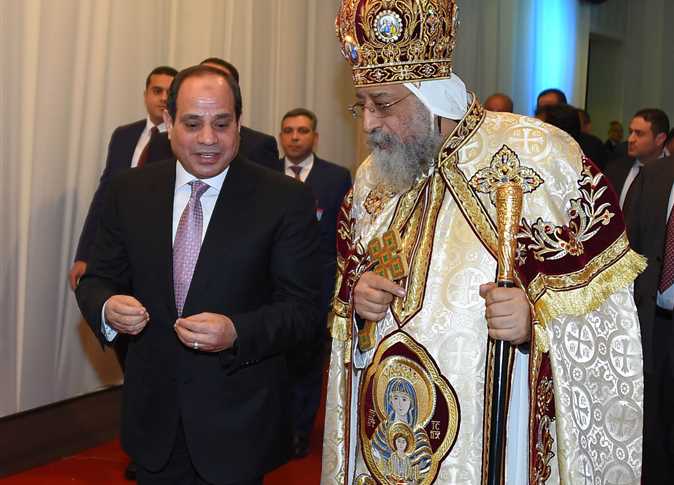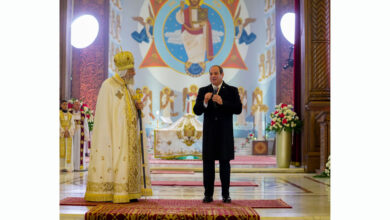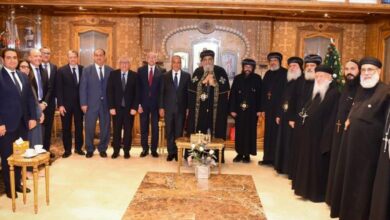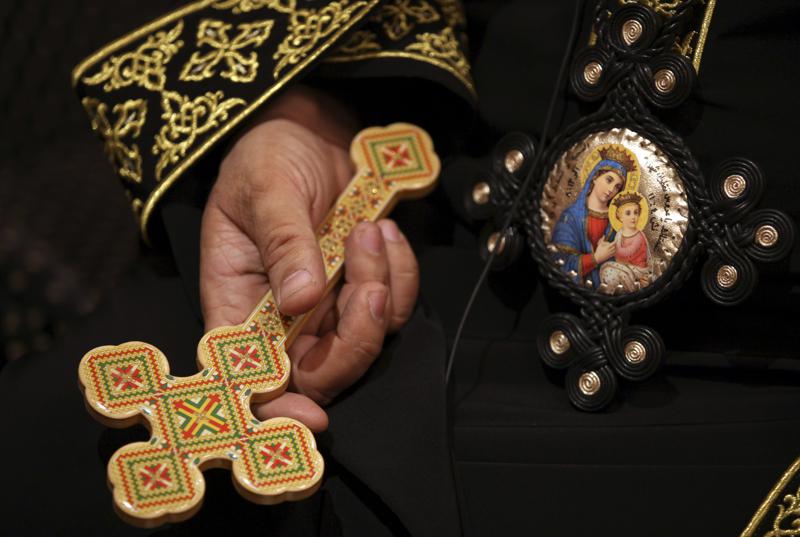
A US-based study group has urged the Egyptian Coptic Orthodox Church to abstain from state-oriented political involvement and adjust its focus to civil society.
While hesitating to support the 2011 uprising against Hosni Mubarak, the Coptic Orthodox Church was outspoken on its backing of the ouster of Muslim Brotherhood-supported Mohamed Morsy in 2013, and has acted as the political mouthpiece for the Christian minority.
However, the Carnegie Endowment for International Peace has advised against emboldening this image, warning the church that “engagement in deals with the state or political parties” could have “drastic consequences because it makes the Church a part of the political regime”.
In an article published on 18 December, Georges Fahmy, a fellow researcher at Carnegie said this position “leads to a situation in which Church decisions can put the lives and property of any individual Copt at risk, even if he or she did not actually participate in making a political choice.”
According to Fahmy, Copts should be free to adopt varied political positions and form groups and movements accordingly.
“Rather than trying to unify Egypt’s Christians under its leadership, the Church should withdraw from the political sphere and allow Copts to defend their interests themselves by joining political parties and movements.”
Fahmy’s article came days before Pope Tawadros II, head of the Coptic Orthodox Church, said in an interview with Spanish El Mundo published on Tuesday, that he supports the release of former president Mubarak from prison.
Mubarak, along with former security officials, were acquitted in November of charges of murdering protesters in 2011. Tawadros cited Mubarak’s “age” and “good deeds in office” as reasons he had to be released.
But Fahmy suggests that Tawadros’s political positions endangered the security of Egypt’s largest minority, explaining that his support for the ouster of Morsy in 2013 made the church, in the viewpoint of the Muslim Brotherhood and its hardline Islamist allies, a partner in a conspiracy against the elected president.
That led to a series of sectarian encounters and assaults on Christian properties and at least 42 churches across the republic, Fahmy pointed out. Therefore, the Fahmy advises the church to rather focus its activities on advocating more universal causes such as human rights and social justice for the interest of both Christians and Muslims as means to reduce political polarization.




